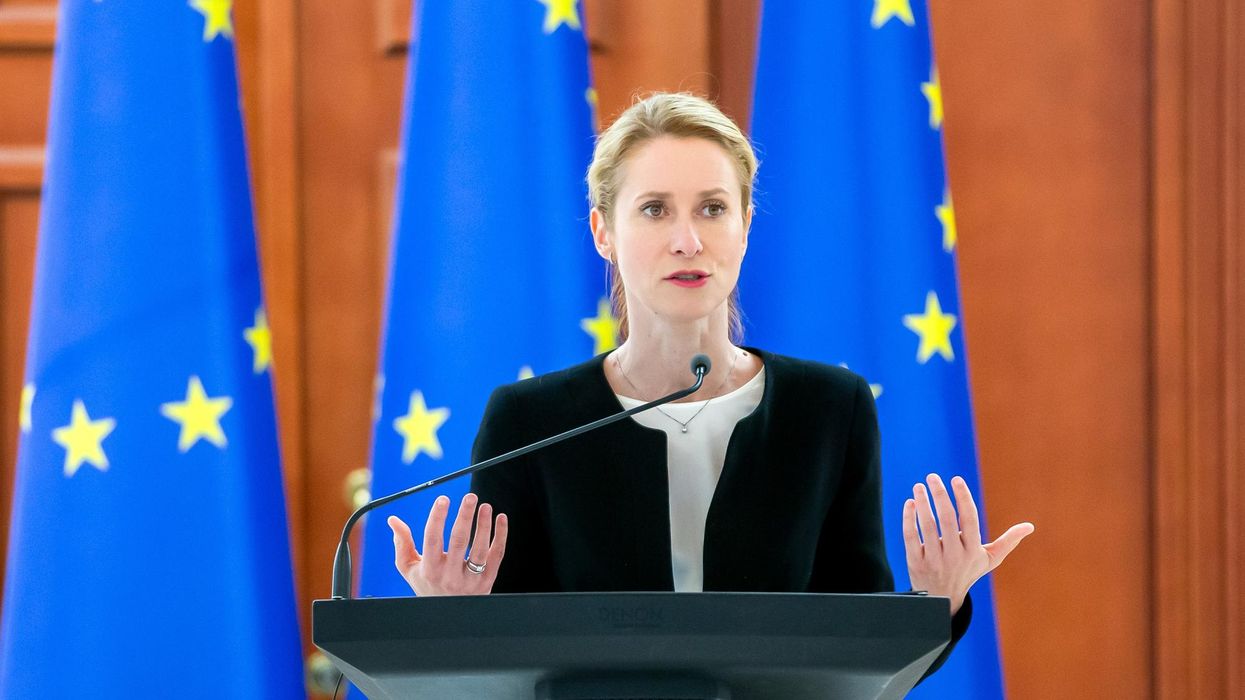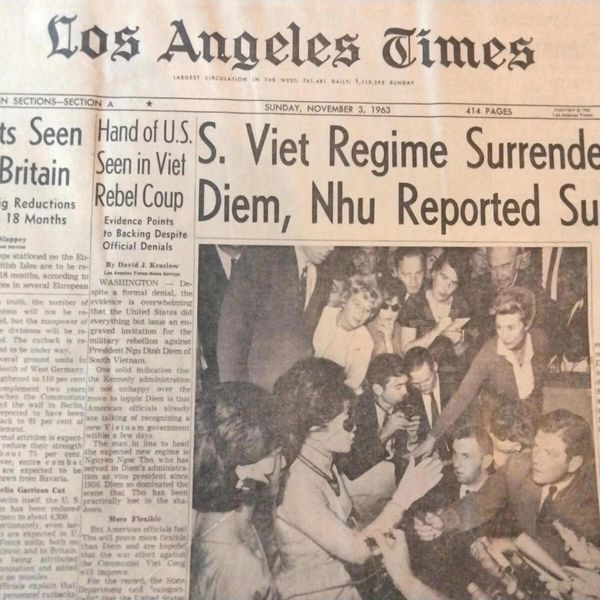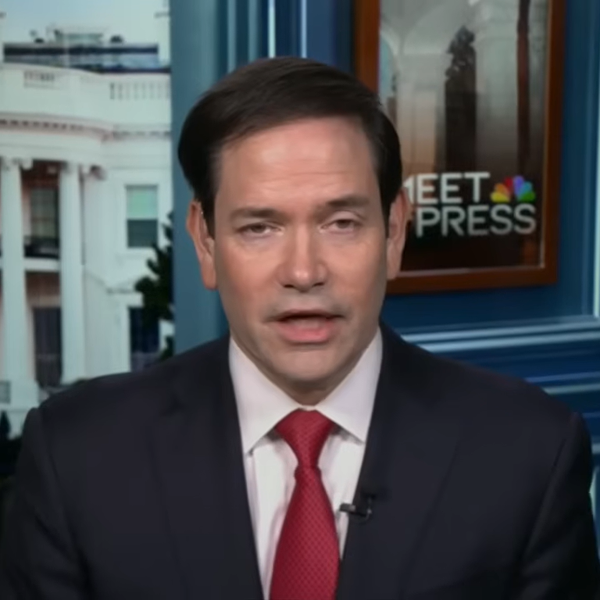This article was co-published with The Daily Beast.
Earlier this month, a study group established by Congress recommended that President Joe Biden extend the May 1 deadline for withdrawing troops from America’s longest war. It’s a strategy that many experts say runs the risk of abrogating the U.S.-Taliban agreement and potentially setting back the potential peace process in Afghanistan — or even dooming it to failure.
Perhaps unsurprisingly, there is a striking similarity in the backgrounds of the individuals involved in these critical recommendations, which are likely to influence whether Biden maintains a “conditions based” U.S. military footprint in Afghanistan. Two of the group’s three co-chairs and nine of the group’s 12 plenary members, comprised of what the group refers to as “members,” have current or recent financial ties to major defense contractors, an industry that soaks up more than half of the $740 billion defense budget, and stands to gain from protracted U.S. military involvement overseas.
There was more diversity in views and financial interests among the 26 “senior advisers” that the group consulted. At least three of these advisers have warned publicly that the suggested troop withdrawal extension may pose significant risks. But the study group’s plenary is deeply intertwined with the military industrial base, with nearly $4 million the group’s co-chairs and plenary have received in compensation for their work on the boards of defense contractors.
Of course, the recent Taliban offensive on key cities in Afghanistan have created a greater incentive for U.S. policymakers to keep troops in Afghanistan, even at the expense of prolonging a two-decades long conflict with no clear end in sight.
“This is a good example of the fox guarding the henhouse,” said Mandy Smithberger, director of the Center for Defense Information at the Project on Government Oversight. “One of the problems in our foreign policy making is that all of the advice is heavily dominated by people with financial stakes in continuing war.”
For example, Ret. Gen. Joseph F. Dunford was a co-chair of the Afghanistan Study Group. Dunford served as Chairman of the Joint Chiefs of Staff from 2015 to 2019, commandant of the Marine Corps, and Commander of all United States and NATO forces in Afghanistan in 2013.
He led the group alongside Kelly Ayotte, who represented New Hampshire in the Senate from 2011 to 2016, and Nancy Lindborg, the President and CEO of the David and Lucile Packard Foundation.
Dunford and Ayotte have also used their expertise not just to advise the Biden administration on the Afghanistan War but to cash in with major defense contractors.
Since 2017, Ayotte has served on the board of BAE Systems Inc., a subsidiary of the U.K. defense giant BAE Systems plc. Dunford, for his part, joined the board of Lockheed Martin last year. SEC filings show Dunford holds approximately $290,000 worth of stock as part of the “Lockheed Martin Directors Equity Plan,” a scheme to award stock to directors in order to “further align their economic interests with the interests of stockholders generally.”
Nine plenary group members also maintained deep ties to the weapons industry.
Susan M. Gordon, the Principal Deputy Director of National Intelligence from 2017 to 2019, collected $26,250 in cash from defense contractor CACI for her partial year’s work on its board in 2020 and reported holding approximately $160,000 in CACI stock.
Stephen J. Hadley served as deputy national security adviser during George W. Bush’s first term, a role in which he offered his resignation due to his part in allowing faulty intelligence about Iraq’s pursuit of alleged nuclear weapons material from Niger to be included in the president's 2003 State of the Union Address. Bush denied Hadley’s resignation request and Hadley went on to become national security adviser in 2005, leading a 2007 campaign to promote the troop surge in Iraq.
After the Bush administration, Hadley cashed in, joining Raytheon’s board in 2010 and receiving nearly $2.6 million in cash and stock awards over the following nine years.
Margaret O’Sullivan, who served as deputy national security adviser for Iraq and Afghanistan from 2005 to 2007, also serves on the board of Raytheon, which has a $145 million contract to train Afghan Air Force pilots. She received $940,000 in cash and stock from the defense contractor between 2017 and 2019.
The nearly $4 million in compensation from Lockheed, CACI, and Raytheon for Dunford, Gordon, Hadley and O’Sullivan is clearly traceable due to their role as board members at publicly traded companies, but other financial ties to the weapons industry for study group plenary members are slightly more opaque.
Former Senator Joe Donnelly is a partner at Akins Gump which received $240,000 from Raytheon for lobbying services in 2020.
Michele Flournoy, who served as under secretary of defense for policy under President Obama, was also part of the ASG’s plenary group. She co-founded WestExec Advisors, a consulting firm that was revealed to have conducted advisory work for Boeing when Antony Blinken revealed a portion of the firm’s client list as part of the nomination process to become Biden’s secretary of state.
Lisa Monaco, also a plenary group member, previously served as Obama’s homeland security and counterterrorism adviser. She is listed as a “principal” at WestExec, and O’Sullivan is a “senior adviser.”
In fact, only one co-chair, Lindborg, and three plenary group members — International Rescue Committee President and CEO David Miliband, McCain Institute Executive Director Mark Green, and RAND Corporation fellow James Dobbins — are without clear institutional or fiduciary ties to the weapons industry.
“This shows the government is not getting a diversity of perspectives,” said Smithberger. “It speaks to the capture of our foreign policy by the defense industry.”
Neither the United States Institute of Peace, which hosted the group, nor any of the co-chairs or plenary group members responded to requests for comment about the potential conflict of interest between the outside work undertaken by group members and their policy recommendations about the Afghanistan War.
The Afghanistan Study Group did consult with experts who supported the May 1 pullout or had concerns about what an extension might tentail, as Jonathan Schroden—a special operations program director at the Center for Naval Analyses and a senior adviser to the group—noted.
“The group of senior advisers was a pretty diverse group of people with really deep expertise on Afghanistan and the various functional areas that would be of importance to think about in the future of Afghanistan,” said Schroden. “They really did a good job of bringing together a group of senior advisers who could speak to all of the issues and do so from a U.S.-interests perspective.”
But Schroden took issue with the group’s ultimate conclusions, noting, “The major issue is that the report overestimates the amount of leverage the U.S. actually has, especially when it comes to things like countering corruption in Afghanistan and getting the Taliban to, in some ways, bend to U.S. desires within the structures of the US-Taliban agreement.”
“If you take a view that the U.S. has less leverage than the report assumes, then I think you find yourself in a place of concluding that a unilateral extension of presence, as the report recommends, will likely result in the Taliban walking away from the peace process,” he added.
A similar critique was voiced by another group adviser, Barnett Rubin, a senior adviser on Afghanistan and Pakistan during the Obama administration, who told The Washington Post that a unilateral violation of the May 1 withdrawal deadline would be a mistake and urged the White House to negotiate a six-month withdrawal extension.
Rubin and fellow Study Group adviser Laurel Miller, who served as deputy and then acting special representative for Afghanistan and Pakistan from 2013 to 2017, have both put forward proposals for a negotiated six-month extension in the withdrawal timetable, maintaining a clear time limit on a U.S. military presence in Afghanistan, a limitation that the group did not adopt in its proposal for extending the withdrawal timetable.
Schroden, for his part, was clear that the policy pathway to an extension of the May 1 deadline might not be straightforward, an assessment that Miller shares as well.
“The Taliban have been very clear that if U.S. troops aren't gone by May they will view it as an abrogation of the deal,” said Schroden. “The only way an extension would work is if the U.S. negotiates an extension with the Taliban, which might require additional concessions from the U.S.”
















